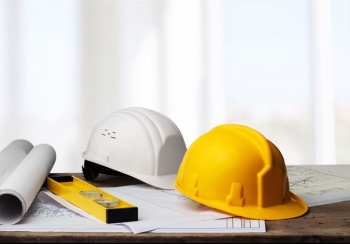
Construction managers play a crucial role in the successful execution of construction projects, overseeing various aspects to ensure that projects are completed on time, within budget, and with the highest level of quality.
Their responsibilities are diverse and demand a combination of technical knowledge, leadership skills, and effective communication.
So what does a construction manager do regularly as part of their job?
Let’s take a look at the overall responsibilities and expectations of a construction manager.
The Daily Responsibilities of a Construction Manager
From project planning to navigating complex building codes, the goal of a construction manager is to make sure that projects progress smoothly, meeting high standards and staying within budget. But what does a construction manager do on a daily basis to meet this goal? Here’s an overview of the various things a construction manager may do at their site.
1. Creating Effective Project Management Plans
According to the Bureau of Labor Statistics, some employers refer to construction managers as project managers instead. Part of the reason for this is that construction managers must oversee a project from start to finish. Whether the project is residential, commercial, or public, construction managers must constantly monitor and update the completion schedule to adapt to any unforeseen challenges that may arise during the construction process. This involves defining project goals, scope, budget, and timelines from the very beginning of any construction project.
2. Ensuring Contract Completion and Accuracy
What does a construction manager do to ensure contract completion and accuracy? Essentially, they “own” the contractual agreements, paying attention to not only the big picture but also the details.
Construction managers facilitate teamwork between designers, contractors, and subcontractors, ensuring each party executes their roles and responsibilities. On a daily basis, construction managers can expect to review and verify contract details with each completed step of the project. This diligence ensures a smooth workflow, preventing misunderstandings and potential disputes that could hinder the progress of the construction project.
3. Managing Safety on the Construction Site
Construction managers must conduct regular safety inspections to identify any potential work hazards. Moreover, construction managers are also responsible for creating a safety-first culture, following necessary guidelines set by OSHA and other regulatory bodies.
This includes:
- Determining what types of equipment need to be used for a particular job;
- Ensuring compliance with local, state, and federal safety guidelines and regulations;
- Monitoring the job site for safety-related concerns or issues; and
- Scheduling training for workers on how to complete certain tasks safely.
A commitment to safety not only protects individuals on the construction site but also contributes to the overall success of the project by preventing accidents and delays. This is why construction managers must ensure that the site is as safe as possible.
4. Budgeting for Construction Project Costs
When it comes to budgetary concerns, a construction manager can expect to:
- Estimate costs and procure necessary resources;
- Monitor and manage expenditures throughout the project’s lifecycle; and
- Prevent unnecessary costs and maintain the financial health of the project.
These three responsibilities are key to a construction manager’s job. Creating a bad budget can make or break a project. However, project requirements can vary greatly depending on the specific contract in place. Often, a construction manager is responsible for the project meeting these constraints.
5. Maintaining Compliance with Building Codes
Construction managers must always stay up to date with local, state, and federal building codes and regulations relevant to their projects. This not only involves regularly reviewing changes in the legal requirements but also incorporating building codes into the overall project strategy. In fact, conducting daily code compliance checks is a routine task for construction managers. They must also maintain comprehensive documentation related to building code compliance for regulatory approvals and inspections.
What Does a Construction Manager Do the Rest of the Time?
Apart from the daily tasks listed above, construction managers have a range of responsibilities to ensure the overall success of the project.
This includes:
- Providing team leadership and communication,
- Communicating with construction site visitors,
- Reporting project progress to the necessary stakeholders, and
- Developing contingency plans to mitigate the impact of any risks.
In general, construction managers have an ethical duty to make sure that projects are completed to specifications without risking safety. This makes it a challenging yet rewarding career for those who like to manage large projects.
Learn More About Construction Management with Stratford Career Institute’s Course
If you’re looking to explore the dynamic world of construction management, deepen your knowledge, and hone your skills, check out the construction management course at Stratford Career Institute! In this introductory distance learning program, you’ll delve into the intricacies of project planning, budget management, team leadership, safety protocols, and more.
Whether you’re new to the field or seeking to enhance your expertise, this course can help provide the essential tools for success in construction management. To get started, request more information or enroll today!
Explore a New Career in Construction Management

Sign up or learn more about our online course.

